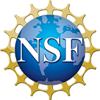
CERP to support new NSF INCLUDES Alliance focused on increasing equity and broadening participation in STEM
On August 3, 2021, the National Science Foundation (NSF) announced five new NSF INCLUDES Alliances, which will each address a critical broadening participation challenge in STEM at scale.
The CRA Center for Evaluating the Research Pipeline (CERP) will support one of the new INCLUDES Alliances as a consultant representing BPCnet.org, a clearinghouse for the community to learn about and engage with ongoing projects to address underrepresentation in Computing. Through this collaboration, CERP will work to expand the BPCnet.org Statistics and Data Hub, an online tool that currently provides computing-related data at the K-12 and postsecondary levels.
CERP is looking forward to supporting this new INCLUDES Alliance:
- NSF INCLUDES Alliance: Partnerships Launching Underrepresented Students:Northeastern University, Karl Reid, Claire Duggan, Richard Harris Michael Silevitch; Sage Fox Group Alan Peterfreund
All other new Alliances are listed below:
- NSF INCLUDES Alliance: Broadening Career Pathways in Food, Energy, and Water Systems with and within Native American Communities: University of California Berkeley, Alice M. Agogino, Elizabeth Hoover Matthew Potts; American Indian Science and Engineering Society, Kathy DeerInWater; University of Arizona, Karletta Chief
- NSF INCLUDES Alliance: The Alliance of Students with Disabilities for Inclusion, Networking, and Transition Opportunities in STEM:Auburn University, Overtoun M. Jenda, Daniela Marghitu, Brittany McCullough, David Shannon; Alabama State University, Carl Pettis
- NSF INCLUDES Alliance: The Alliance for Identity-Inclusive Computing Education – A Collective Impact Approach to Broadening Participation in Computing:Duke University, Alicia N. Washington, Shaundra Daily
- NSF INCLUDES Alliance: Accelerate Latinx Representation in STEM Education with Institutional Intentionality and Capacity Building for Experiential Learning:Arizona State University, Caroline VanIngen, Shelley Haydel Cynthia Pickering; San Diego State University, Felisha Herrera Villarreal; Phoenix College, Maria Reyes
This post is brought to you by the CRA’s Center for Evaluating the Research Pipeline (CERP). CERP provides social science research and comparative evaluation for the computing community. Subscribe to the CERP newsletter & bulletin by clicking here. Volunteer for Data Buddies by signing up here.






